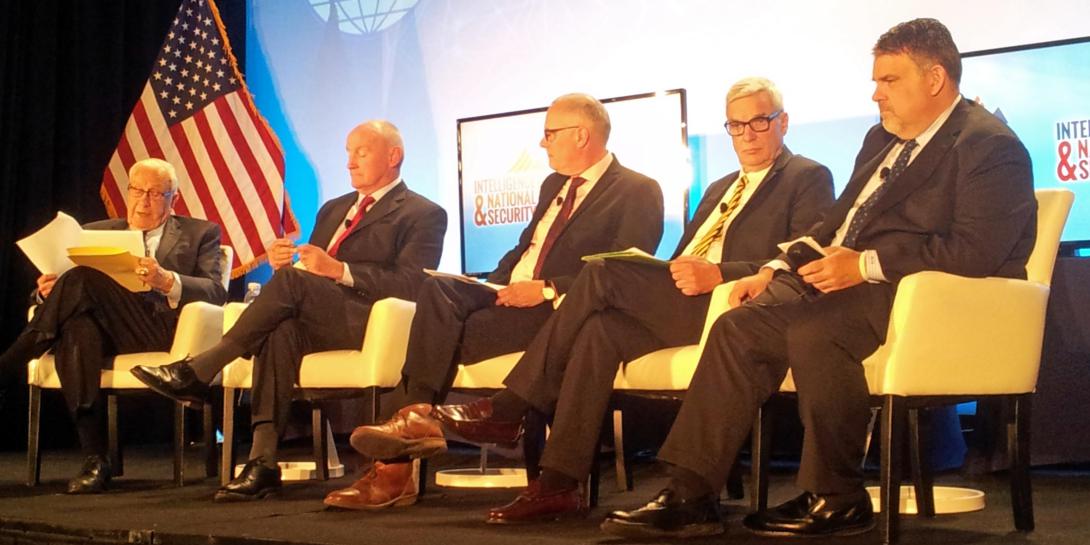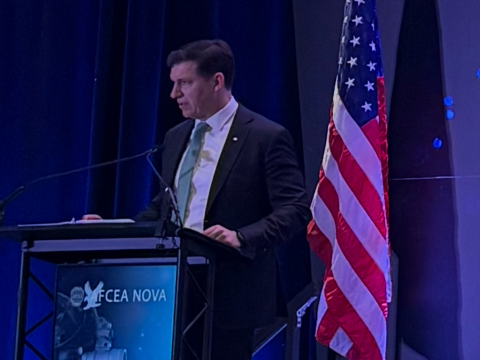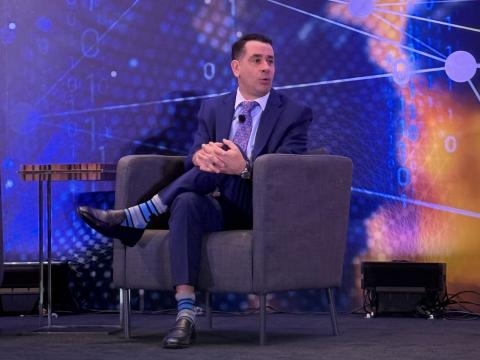Technology Is a Wonderful Thing--For Terrorists
A panel of security and counterterrorism experts from four countries—Canada, Germany, the United Kingdom and the United States—shared insights into the ability of terrorist groups to use a variety of technologies, including the Internet, bomb-dropping unmanned vehicles, bioterrorism and artificial intelligence, to wield destruction around the world.
The experts shared their comments during a presentation at the 2017 Intelligence and National Security Summit in Washington, D.C.
Paddy McGuinness, deputy national security advisor the intelligence and security resilience in the United Kingdom, said terrorist groups are persistent, that no matter how much they are attacked or degraded, they continue. He expressed concerns voiced by many about the ability of such groups, including ISIS, to recruit new members or radicalize followers from afar using online capabilities.
McGuinness: The Internet is a wonderful thing. And it's a dreadful thing.#Intelligence2017
— George Seffers (@gseffers) September 7, 2017
“We’ve got a big problem with terrorism, and that problem is called the Internet. The Internet is a wonderful—and terrible thing. If we do not address the issue of terrorists using the Internet, we are likely to consistently fail in this task,” McGuinness warned.
Chris Rousseau, head of Canada’s Integrated Counterterrorism Center, discussed the evolution of terrorist groups in recent years, referring to modern efforts as “Terrorism 3.0.” Groups likely will begin using unmanned aerial vehicles to deliver explosives, Rousseau warned, pointing out that ISIS already is using the tactic on the battlefield in an effort to hold onto territory.
Terrorism 3.0 includes attempts at martyrdom and attacks on the attacker’s home country, he added. Rousseau also predicted that weaponized chemicals will become a major concern.
Rousseau: says current threat, terrorism 3.0, includes Internet radicalism and attacks in terrorist's home country.#Intelligence2017
— George Seffers (@gseffers) September 7, 2017
Friedrich Grommes, who leads the Directorate TE, International Terrorism and International Organized Crime, within Germany’s federal intelligence agency known as BND, cautioned that al-Qaeda is still a threat. He explained that the organization has long touted the benefits of the types of “leaderless attacks” that are becoming more common today. Although many of the experts warned that terrorist groups are rapidly adopting new technologies, Grommes pointed out that many also are simplifying their attacks, using knives, cars and other easy-to-purchase and easy-to-use weapons.
Grommes: warns of "leaderless attacks" promoted by Al Qaida leaders#Intelligence2017
— George Seffers (@gseffers) September 7, 2017
Rousseau informed the audience that many attackers who have been radicalized online by extremist Islamic groups actually have little knowledge of Islam. In many cases, the level of knowledge they possess could be found in an introductory documentary, he said.
Nick Rasmussen, director, National Counterterrorism Center, Office of the Director of National Intelligence in the U.S., stressed the need to encourage ordinary citizens to disclose information early. “In most cases there was somebody somewhere who saw, knew, or intuited” that something was amiss, he said. “In up to 80 percent of the cases, someone was aware of what was going on.”





Comments